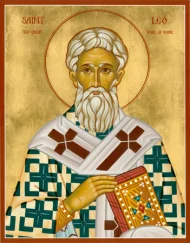 If ever that rarer sort of romantic love, which was the truth that sustained the Troubadours, falls out of fashion and is treated as fiction, we may see some such misunderstanding as that of the modern world about asceticism.
If ever that rarer sort of romantic love, which was the truth that sustained the Troubadours, falls out of fashion and is treated as fiction, we may see some such misunderstanding as that of the modern world about asceticism.
[…] Men will ask what selfish sort of woman it must have been who ruthlessly exacted tribute in the form of flowers, or what an avaricious creature she can have been to demand solid gold in the form of a ring; just as they ask what cruel kind of God can have demanded sacrifice and self-denial.
They will have lost the clue to all that lovers have meant by love; and will not understand that it was because the thing was not demanded that it was done.
But whether or no any such lesser things will throw a light on the greater, it is utterly useless to study a great thing like the Franciscan movement while remaining in the modern mood that murmurs against gloomy asceticism.
The whole point about St. Francis of Assisi is that he certainly was ascetical and he certainly was not gloomy.
As soon as ever he had been unhorsed by the glorious humiliation of his vision of dependence on the divine love, he flung himself into fasting and vigil exactly as he had flung himself furiously into battle.
He had wheeled his charger clean round, but there was no halt or check in the thundering impetuosity of his charge. There was nothing negative about it; it was not a regimen or a stoical simplicity of life.
It was not self-denial merely in the sense of self-control. It was as positive as a passion; it had all the air of being as positive as a pleasure. He devoured fasting as a man devours food. He plunged after poverty as men have dug madly for gold.
And it is precisely the positive and passionate quality of this part of his personality that is a challenge to the modern mind in the whole problem of the pursuit of pleasure.
[…] It is certain that he held on this heroic or unnatural course from the moment when he went forth in his hair-shirt into the winter woods to the moment when he desired even in his death agony to lie bare upon the bare ground, to prove that he had and that he was nothing.
And we can say, with almost as deep a certainty, that the stars which passed above that gaunt and wasted corpse stark upon the rocky floor had for once, in all their shining cycles round the world of labouring humanity, looked down upon a happy man.
G.K. Chesterton (1874-1936): St Francis, ch. 5.









Perhaps the oddest thing about the pursuit of pleasure in today’s society is that there seems to be no saturation point. People want more and more, whether it is technological gadgets, food products, or variations of sexual activity. I am bewildered that the pendulum does not swing back to saints like Francis of Assisi, that hundreds if not thousands do not flock to the monasteries. I suspect it is because the world has become so hostile to Christianity that many children do not even know about spirituality or have been taught to scorn it. In the void of a positive alternative, I suppose they can only keep doing more of the same.
I think the relentless promotion of the gospel of pleasure by the media, politicians, etc, makes it difficult for all but the most independent-minded people to resist. And maybe monasteries and religious orders are also at fault – whether by diluting or changing the vision and charism of their respective founders, or else by allowing the joyous zeal of a St Francis or a St Benedict to fade into something ordinary and uninspiring.